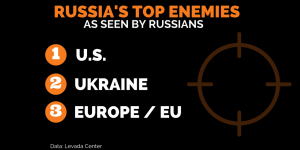If you were a pro-Kremlin disinformer with writer’s block, like reported by euvsdisinfo.eu, where might you turn for inspiration?
Think about Denmark. Its animal world will never let you down.
It may seem surprising at the first sight, but disinformation is frequently seeking inspiration from the zoology of Denmark. This week Sputnik in English claimed that Denmark collects people’s unwanted house pets as feed for carnivores. It describes lively how “for those willing to do away with their pet, hungry predators at the Copenhagen Zoo and Givskud Zoo are more than ready to take over”.
In fact, you can’t just drop off animals, and the practise is not a way for people to get rid of unwanted pets. It is not unusual to feed predators with euthanized animals, and correct feeding is one of the prerequisites for animals thriving.
So, far from being a surprise, this example of fabrication shows the pattern of disinformation at work. Using the already existing prejudices of the audience, the article magnifies the distorted picture of Denmark as an exceptionally cruel place for animals. And this is not the first time.
Censoring threats
Take the Øresund Bridge from Denmark to Sweden, and a whole different collection of preconceptions are at the disposal of the pro-Kremlin disinformation campaign.
A Georgian disinformation outlet distorted a BBC interview with the head of Sweden’s security service, Anders Thornberg, and cut out the parts where he warned about foreign political interference ahead of the election there: “It’s very important for us to follow this and we are not shy in Sweden – we say that the biggest threat to our security in that perspective is Russia,” Mr Thornberg sayed. But in Georgian disinformation, the only threat Thornberg was referring to was the increased threat of extremism – supporting the idea of Sweden as a country on the verge of war because of migration.
In Russian, the same expectations of the audience were nourished with a different story: that Sweden introduces a new law that will require persons involved in sexual relations to record or write a statement that both are agreeing to sex – all this due to the many rapes committed by migrants in Sweden. Ria Novosti frames the article by revising a Russian proverb: “What is easier? To change the migration policy or frighten your own people so that others would be afraid?” The article misinterprets how democratic decision-making works and misleads the reader into thinking that what Sweden would really want to do is punish migrants, but what it is instead doing is imposing restrictions on the sex-lives of all Swedish citizens.
Ukraine and the US as targets
This week, the disinformation campaign was active also in exaggerating Ukraine’s troubles. We heard that citizens of Ukraine are deported from the EU in masses. The only problem is that the figures presented in the disinformation article do not support this conclusion. Similarly unsubstantiated was the claim that the European Commission is accusing Ukraine of flooding the EU with heroin.
The US, as another traditional target of the disinformation campaign, was again accused without evidence of training and arming Isis and blocking humanitarian aid in Syria.
In the end, what is the impact of this disinformation campaign? Levada, an independent Russian pollster, published one answer on the impact for the Russian audience on Wednesday. According to the poll, 66% of the Russian respondents believe that Russia has enemies. And the top 3 coincide exactly with the most frequent targets of disinformation: 1. USA (68%), 2. Ukraine (29%), 3. Europe / European Union (14%).



